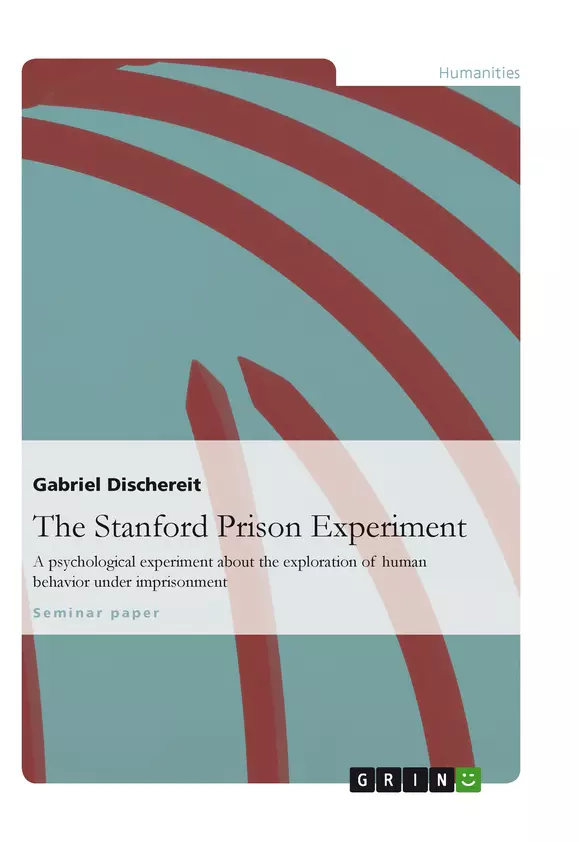In the 1970s and '80s, the behavioral researcher and psychologist Prof. Philip Zimbardo tested the effects of extraordinary situations on human subjects. Zimbardo was less concerned with demonstrating the personal situations, developments and psychological case studies of individuals, and rather was searching for universal relationships between external influences and the behavior of the subject.
Such influences are to be observed in situations of extreme duress, as illustrated by those in prisons.
After World War II there were a multitude of reports from prisoners about their personal experiences, the influences and effects of their respective time in prison. Zimbardo now wanted to observe the effects of prison on a universal level. He thus clearly separated the personal psyche of the individual from the factors that would encroach from the "outside", making them equal to prisoners.
The core question Zimbardo was experimenting with was the question of the "good" and "evil" in humans. Would good or evil triumph in individuals who were subjected to extreme stress and were required to resort to violence? What influence does the environment have on this decision? Who is actually responsible for reporting extraordinary violence in prisons? Is it the special characters and individuals gathered within the prison, or must this phenomenon be ascribed to the imposed prison environment?
Table of Contents
1. Introduction
2. Methodology
2.1. Test subjects
2.2. The prison
2.3. Instructions within the prison
3. Implementation
3.1 Arrival at the prison
3.2. The prison officers
3.3 The beginning of the experiment
3.4. The course of the experiment
3.4.1. Day and night program
3.4.2. The uprising
3.4.3. Psychological tactics
3.4.4. Dismissing the prisoners
3.4.5. The end of the experiment
4. Results and discussion
4.1. Effects of psychic pressure
4.2. Loss of reality
4.3. Situation and structure
4.4. Comparative observations
4.5. Reality vs. Simulation
4.6. The power of the prison guards
4.7. Pathological prisoner syndrome
4.8. Dependence via the mental loss of masculinity
5. Problems with terms of imprisonment
6. Bibliography
Frequently Asked Questions
What was the main purpose of the Stanford Prison Experiment?
Prof. Philip Zimbardo wanted to test how extraordinary situations and external influences affect human behavior, specifically within a prison environment.
How were the participants assigned their roles?
Test subjects were randomly assigned the roles of either "prisoner" or "prison officer" to separate personal psyche from environmental factors.
What happened during the course of the experiment?
The situation escalated quickly, involving an uprising, psychological tactics by the guards, and significant psychic pressure on the prisoners.
Why was the experiment terminated early?
Due to the extreme loss of reality by participants and the pathological behaviors that emerged, the experiment had to be stopped for ethical reasons.
What is the "pathological prisoner syndrome"?
It describes a psychological state where prisoners experience a loss of identity, dependence, and mental loss of masculinity under extreme duress.
- Quote paper
- Gabriel Dischereit (Author), 2004, The Stanford Prison Experiment, Munich, GRIN Verlag, https://www.grin.com/document/270558



